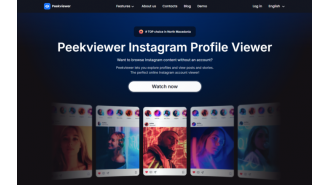The top 10 biggest video game news stories of 2024, covering everything from Xbox to Concord.
The video game industry faced turmoil in 2024. What were the major events and how will they affect 2025?

As we say goodbye to 2024, it's hard not to feel a sense of disappointment and frustration as we reflect on the turbulence that once again rocked the video game industry. But amidst all the chaos, one question remains: what were the biggest stories of the year and how will they shape 2025? Unfortunately, the truth is that 2024 was not much different from its predecessor, 2023. The same issues plagued the industry - mass layoffs, lack of major announcements, and an obsession with live service games despite their continued failure. And to make matters worse, we still have no new information on the highly anticipated Switch 2 and GTA 6.
However, towards the end of the year, there was a glimmer of hope thanks to an exceptional showing at The Game Awards. But for the majority of 2024, we were stuck in a holding pattern, unsure of what exactly we were waiting for. If Xbox and PlayStation have a grand plan, they certainly did not make it obvious. So let's take a look back at the biggest stories of the year and draw our own conclusions on what they mean for the future.
The first major news story of the year was a rumor that Xbox exclusives would now be appearing on PlayStation 5 and Nintendo Switch. This caused quite a stir among fans, with many either denying the possibility or accusing Microsoft of betrayal. And instead of addressing the speculation immediately, Microsoft allowed it to linger for weeks before finally confirming that four games would indeed be making their way to PlayStation 5 and, in some cases, Switch. However, they refused to reveal which games, adding to the confusion.
The announcement was far from smooth, with executives looking sheepish and embarrassed while simultaneously downplaying the idea of games like Starfield and Indiana Jones coming to PlayStation 5, even though one of them was eventually announced later in the year. And even now, we are still unsure of Microsoft's exact policy on multi-platform releases. Sources have revealed that even Microsoft employees are not fully aware of what is going on, with one respected insider referring to Xbox as "a disaster". But let's not forget that Sony's policies are also unclear, with vague comments about supporting other "formats" without specifying what that means. And while they claim that their "tentpole" PlayStation 5 exclusives will not release simultaneously on PC, it seems they are not giving up on the concept of console exclusivity just yet, in stark contrast to Xbox.
The year also saw a staggering number of job cuts in the industry, with over 14,600 reported. When combined with the 10,000 layoffs in 2023, it's clear that the post-pandemic period has been the most disruptive for the video game industry since the US crash of 1983. Experts predict that the constant stream of layoffs and closures will continue into 2025, making the industry a less appealing prospect for both veterans and students. And while the reasons for these job losses are complex, they can largely be attributed to short-sighted companies who underestimated the rising costs of development and the fact that live service games are not a guaranteed source of income for everyone.
Unfortunately, the trend of layoffs was not limited to just one company or region. Japanese developers were largely unaffected, but many Western divisions saw significant job losses, including at Microsoft - who used to own a Japanese developer. This brings us to the next point - the disasters in live service gaming.
The industry's obsession with trying to replicate the success of World of Warcraft during the mid-2000s has resulted in a glut of live service games that are struggling to find an audience. Suicide Squad: Kill The Justice League was doomed from the start, and its failure came as no surprise. Ubisoft's XDefiant and Skull And Bones also fell victim to this trend, but the most notorious flop of the year was Sony's Concord. After eight years in development and only lasting two weeks before being shut down, it was the biggest failure in PlayStation history. And yet, Sony's immediate response was to assure investors that they would continue to pursue live service games - a strategy that has yet to prove successful. Meanwhile, Xbox's console sales continue to decline, and their focus on streaming and subscription services has left fans confused and frustrated.
Speaking of streaming, it's clear that live service games are not dead. While many publishers have acknowledged the challenges of this business model, there have also been some successes, such as Sony's Helldivers 2 and Palworld. However, these titles saw a significant decline in interest after the initial hype, proving that becoming the next Fortnite is no easy feat. But their moderate success has convinced publishers to keep trying, despite the risks.
In conclusion, 2024 was a year of uncertainty and confusion in the video game industry. As we move into 2025, it's clear that there are still many challenges and unanswered questions. But one thing is for sure - the industry will continue to evolve and adapt, and it's up to us to keep up with the changes.
In 2024, the video game industry was once again plagued by turmoil. As the year came to a close, many were left wondering what the biggest stories of the year were and how they would impact the upcoming year of 2025. Sadly, it was hard to say that 2024 was much different from its predecessor, with constant job layoffs and a lack of major announcements continuing to plague the industry. Publishers remained fixated on live service games, despite many of them failing to meet expectations. And to top it off, there was still no news about the highly anticipated Switch 2 and GTA 6.
However, there were glimmers of hope towards the end of the year. The Game Awards gave some cause for optimism, but for the majority of 2024, it felt like the industry was in a holding pattern, with no clear direction or goal in sight. Despite this, let's take a look back at some of the biggest events of the year and see if we can make sense of it all.
One of the first major news stories of the year was a rumor that Xbox exclusives would start appearing on PlayStation 5 and Nintendo Switch. This sparked strong reactions from fans, with some denying the possibility and others accusing Microsoft of betrayal. And instead of addressing the speculation, Microsoft allowed it to linger for weeks before finally confirming that four games would indeed be coming to PlayStation 5 and, in some cases, Switch. However, they refused to reveal which games at first, making the announcement feel disjointed and awkward. And even now, it's not entirely clear what Microsoft's exact policy is regarding multi-platform releases. Sources throughout the year have suggested that even Microsoft employees are unsure of their own company's plans, with one respected source even stating that Xbox is "just a disaster."
But it's not just Microsoft that's causing confusion in the industry. Sony has also made vague comments about supporting other "formats," without specifying what that means. And while they have stated that their "tentpole" exclusives will not release on PC at the same time as PlayStation 5, it's clear that they are not giving up on console exclusivity just yet. This is in stark contrast to insider claims about Xbox, which suggest that there are no boundaries and even key exclusives like Halo and Gears Of War could come to PlayStation 5.
Unfortunately, job cuts continued to plague the industry in 2024, with over 14,600 jobs lost. This, combined with the 10,000 layoffs in 2023, paints a bleak picture for the future of the video game industry. Experts predict that the trend will continue into 2025, making the industry a less appealing prospect for both veterans and students. The reasons behind these job losses are complex, but mostly due to short-sighted companies who failed to prepare for the increasing costs of development and the fact that live service games are not a guaranteed success.
Speaking of live service games, the industry saw its fair share of disasters in this area as well. Many were quick to jump on the bandwagon, hoping to replicate the success of World Of Warcraft, but the reality is that there is only room for a few successful titles in this genre. This was evident in the failures of games like Suicide Squad: Kill The Justice League, Ubisoft's XDefiant, and Sony's Concord. The latter being a particularly infamous flop that took eight years to make and was shut down after only two weeks. Sony's response to this was to assure investors that they would continue to pursue live service games, despite their obvious lack of success.
As for Xbox, the future of the brand is uncertain. It's no secret that Xbox console sales have been struggling, and Microsoft's response to this has been to announce a next-gen console and hint at a possible portable device. But their "This is an Xbox" campaign seemed to actively discourage people from buying an Xbox console, indicating that they believe the future lies in streaming. However, as subscription levels for services like Game Pass and PS Plus remain stagnant, it's unclear if Xbox has a future beyond being a third-party publisher with their own streaming and subscription services.
But while many publishers are starting to realize that live service games are not a guaranteed money-maker, there have been enough successes to give them hope. Titles like Helldivers 2 and Palworld saw initial success, breaking records on Steam and causing a stir in the industry. However, their popularity quickly declined, showing that becoming the next Fortnite is easier said than done.
In conclusion, 2024 was a year of ups and downs for the video game industry. While there were some promising developments, such as the rise of indie titles and the success of certain games, there were also many challenges and disappointments. As we look towards 2025, it's hard to say what the future holds for the industry, but one thing is for sure: the video game landscape will continue to evolve and surprise us.
4 Views










